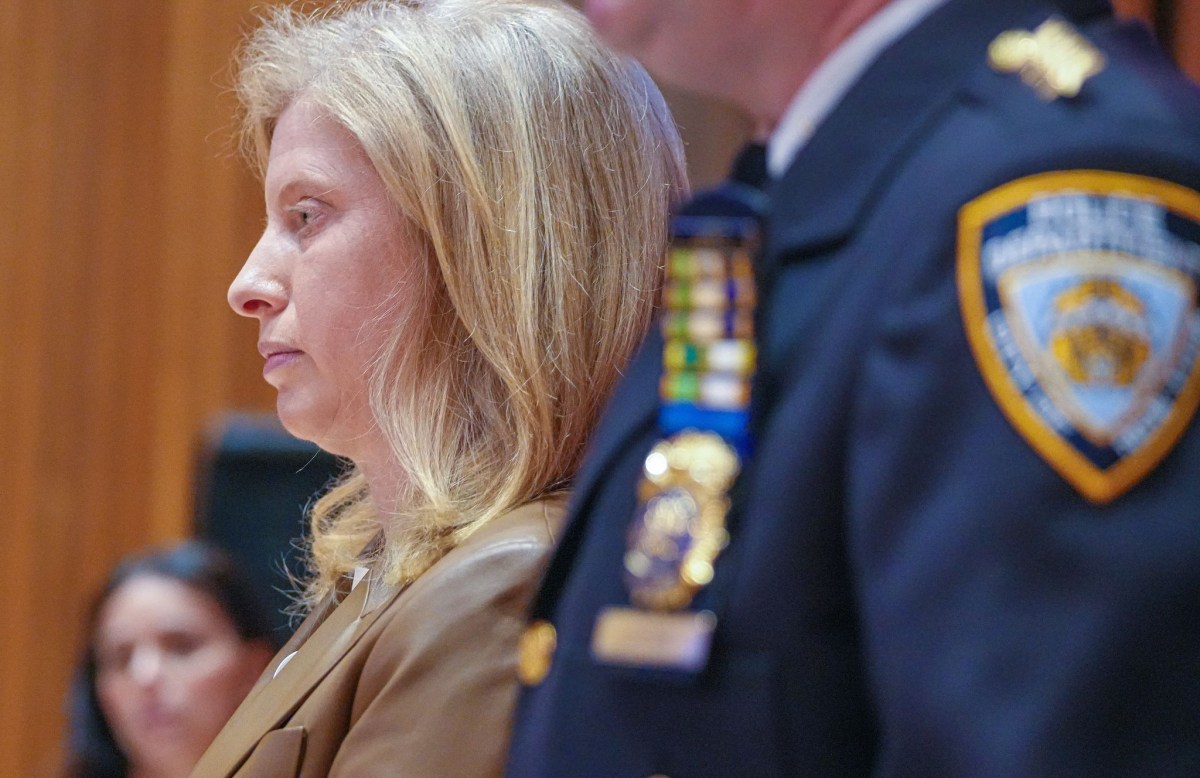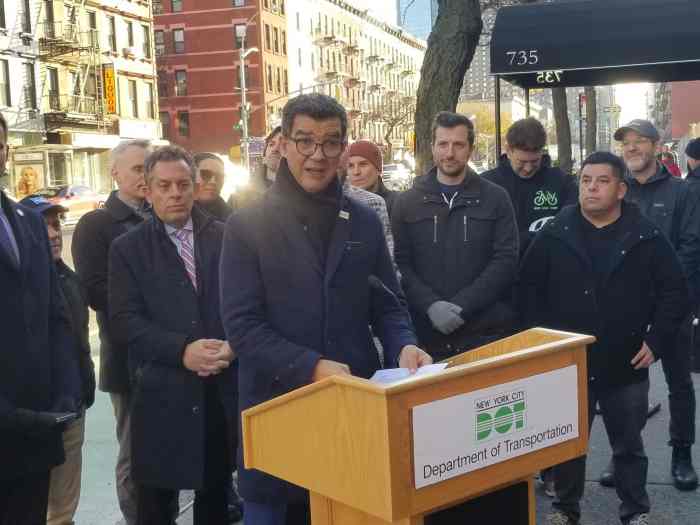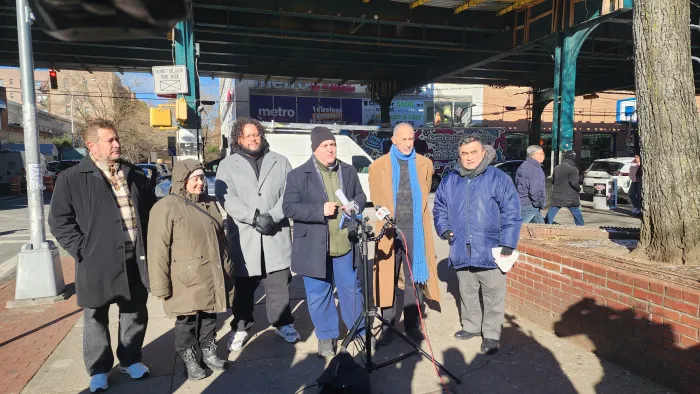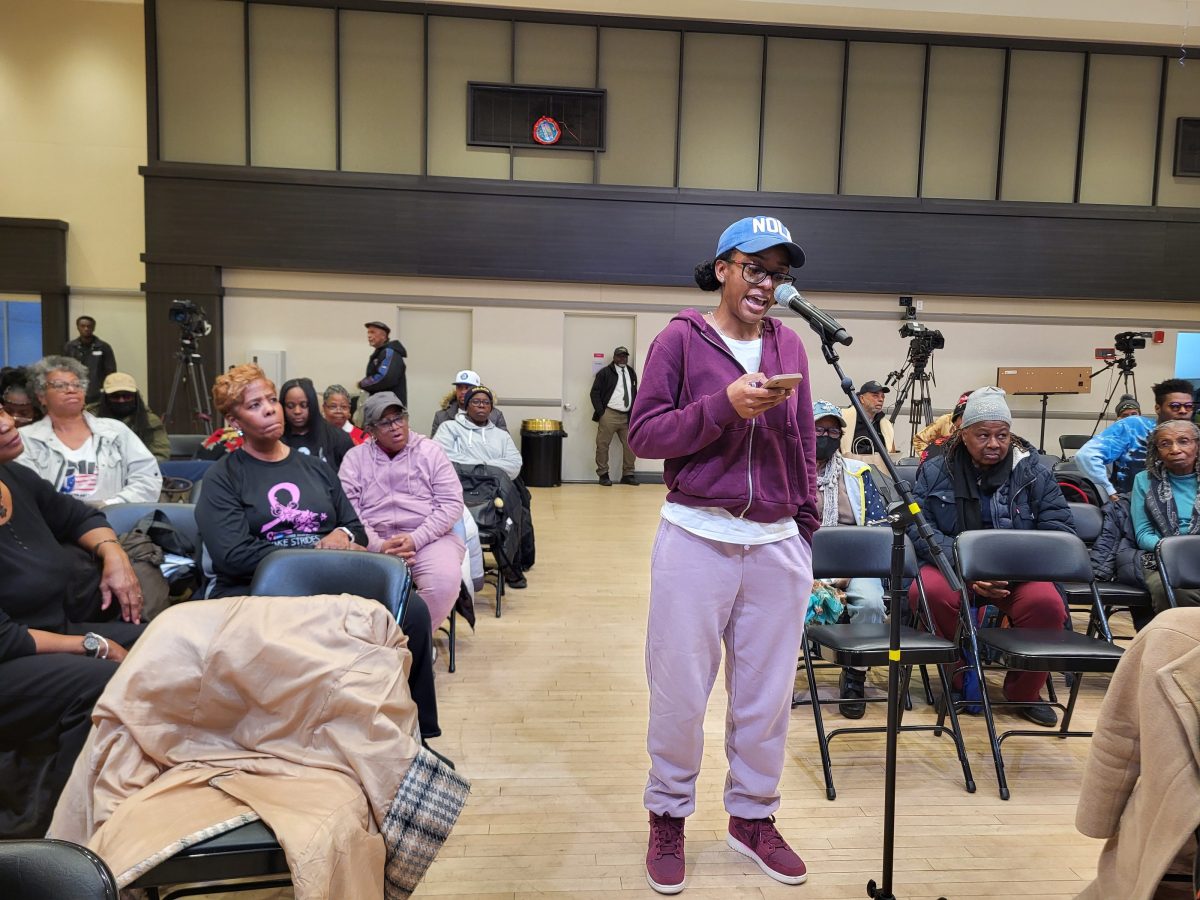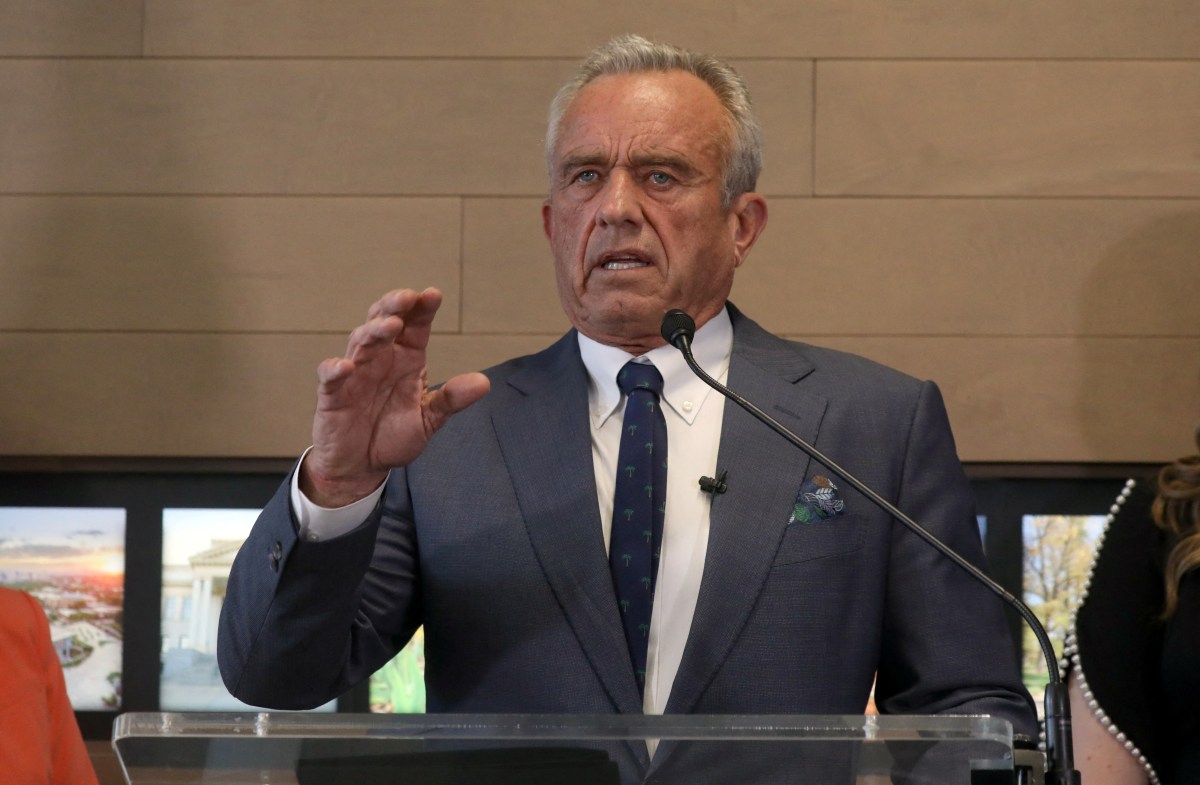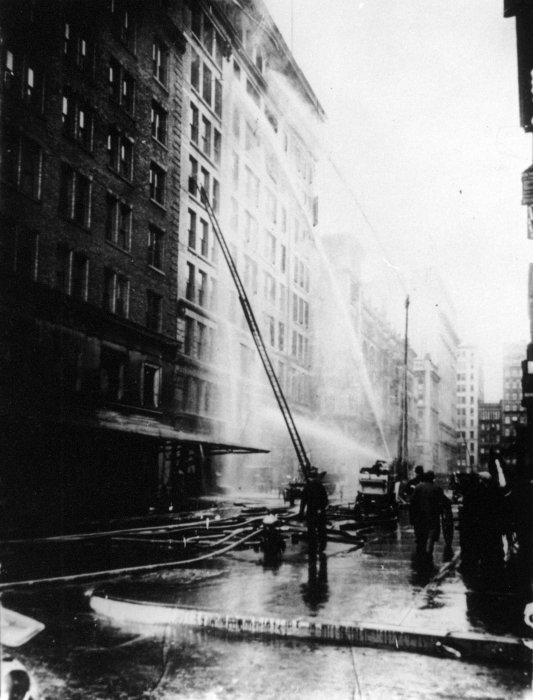Reckless e-bike drivers, illegal vending and outdoor substance use. These are just a handful of the every-day issues that impact New Yorkers’ sense of safety and well-being, and will be addressed through the NYPD’s new Quality of Life Division, the department announced on Thursday.
The new unit will bring together specially trained officers from various community-oriented roles, including neighborhood coordination officers, youth coordination officers and traffic safety officers, into one big citywide effort to tackle persistent quality-of-life concerns that plague the Big Apple.
NYPD Commissioner Jessica Tisch told amNewYork during an interview that police will address a variety of issues New Yorkers filed into the city’s 311 non-emergency complaint system, such as noise complaints, illegal parking, homelessness-related issues and more.
“Most people, if they are lucky, can go their entire lives without being the victim of a crime, but virtually every New Yorker sees or experiences a quality-of-life issue if not daily, certainly weekly. These are things that we’re talking about—illegal parking, abandoned vehicles, perhaps a homeless encampment, unreasonable noise. Out-of-control scooters and e-bikes is something we’re hearing a lot.”
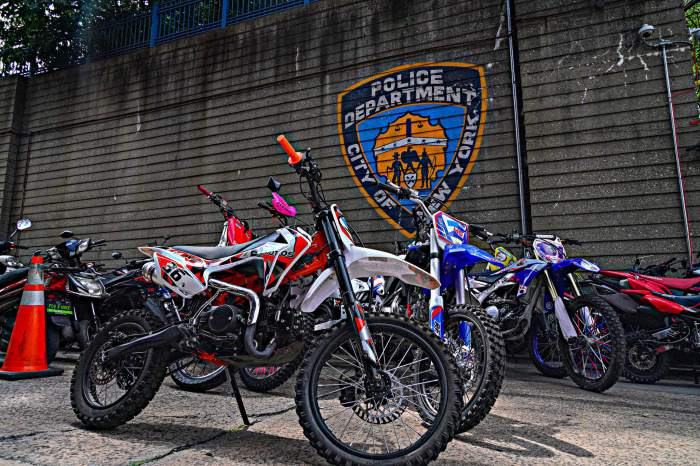
Mayor Eric Adams said the initiative is part of his ongoing effort to improve public safety and decrease crime.
“We were clear from the beginning of this administration about the importance of public safety, and we have been successful at bringing down crime,” Mayor Eric Adams said during an amNewYork interview, adding that the city has seen a dramatic drop in shootings.
He also said public safety is not only about statistics and numbers but how people feel.
“If they don’t feel safe, then we are not matching our success in crime fighting,” Adams said. “And that’s what this new initiative is about.”
Zeroing in on 311
The Quality-of-Life Division is designed to address the issues and problems the police and city officials are hearing most from New Yorkers. The commish added that calls to 311 about issues that affect New Yorkers’ everyday lives have nearly doubled throughout the city over the previous six years.
“This initiative is about being directly responsive to what New Yorkers are telling us,” Tisch said.
However, the new unit is not designed to be like the ‘Broken Windows’ approach NYC experienced in the 1990s, Tisch said, which had a mostly zero-tolerance policy in place.
“Broken Windows in its first iteration in NYC decades ago had this undercurrent of ‘we’re looking to prevent more serious crime.’ Go after the low-level offense to get to the higher-level offense. But that is emphatically not what we are doing here,” the commissioner said. “We are looking at these low-level things to be responsive to what New Yorkers are telling us.”
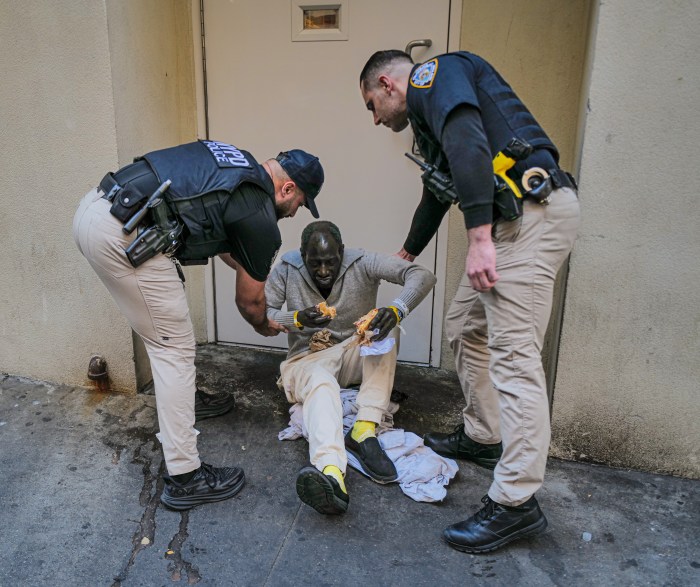
Many will ‘not be arrestable situations’
Police officers in the Quality of Life Division will be given discretion on how to address the condition. They will not have to resort to only arresting offenders.
For example, they can tow a vehicle, issue a summons, or give a warning.
“It will not be zero-tolerance policing,” she said. “A lot of this will not be situations where we will make arrests.”
About 2,000 officers will be part of the new unit. Though NYC is facing a police staffing shortage, Tisch said the department plans to do record hiring this year. As for the Quality of Life Division, officers will come from various precincts and will hone in on 311 complaints.
Led by Deputy Chief William Glynn, a 21-year veteran of the NYPD, the new chief of quality of life division will monitor data trends, including 311 complaints and operational support.
City officials plan to roll out the unit in phases, beginning with a pilot program in five precincts and one housing the Police Service Area: the 13th, 40th, 60th, 75th, and 101st precincts, along with PSA 1. Over the next two months, the initiative will be evaluated and refined before expanding to other commands.
To improve police response to quality-of-life complaints, command-level “Q-Teams” will also be integrated into individual commands. These teams will be led by a Quality of Life Division sergeant, reporting directly to the command’s special operations lieutenant and operating under the direction of precinct commanding officers.
Using a model based on the NYPD’s main crime data tracker, CompStat, a new system called Q-Stat will analyze precinct and public service area data related to 311 service requests. Q-Stat meetings will be held monthly — like CompStat meetings, beginning in May — and will aim to identify neighborhoods susceptible to chronic quality-of-life conditions.



